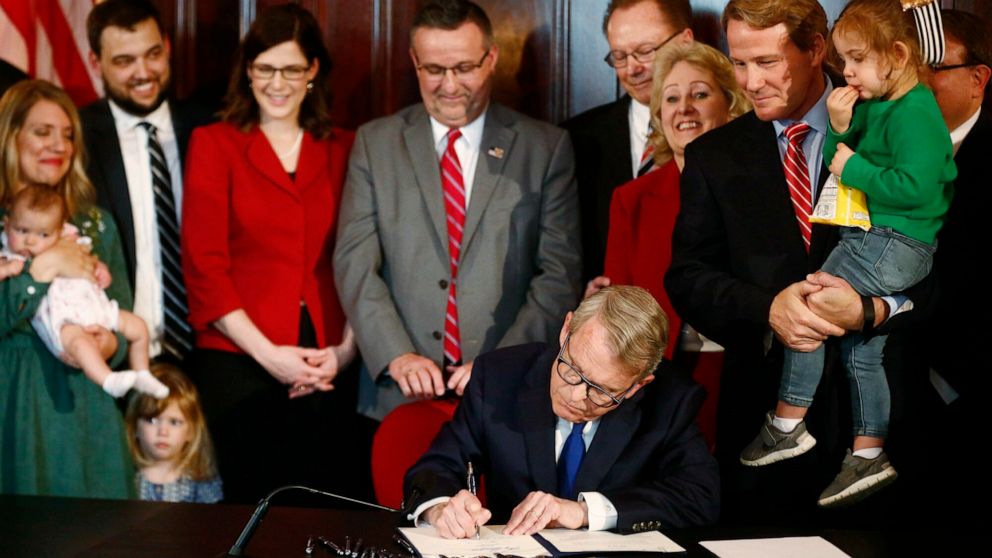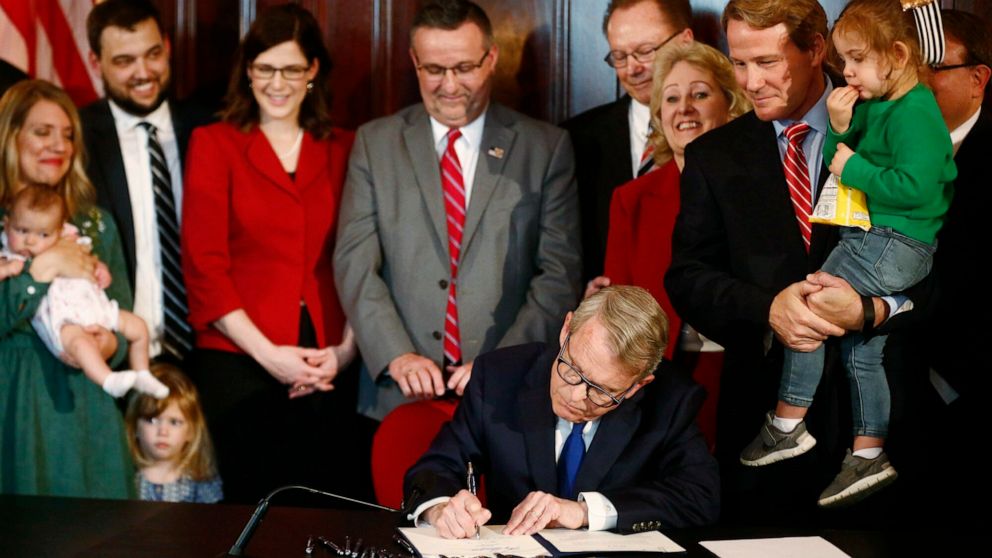





Ohio has now added itself to a growing list of states where the governor has signed a ban on abortions after a heartbeat can be detected.
Republican Gov. Mike DeWine signed the controversial ban, which is one of the most stringent in the country, on Thursday.
Similar bills had been proposed in Ohio in the past, but the state’s last Republican governor, John Kasich, vetoed those saying that they were unconstitutional.
The legality of abortion bans that start at the point of a detectable heartbeat — which can be as early as six weeks into a pregnancy when some women may not know that they are pregnant — has been challenged in a number of other states.
As soon as DeWine signed the Ohio bill into law, the state’s chapter of the American Civil Liberties Union (ACLU) announced that they will be challenging it in court.
“This legislation is blatantly unconstitutional and we will fight to the bitter end to ensure that this bill is permanently blocked,” said Freda Levenson, the legal director of the ACLU of Ohio, in a statement. “SB 23 is one of the most aggressive, oppressive, and radical attacks against women ever seen in this state and this country.”
 (Fred Squillante/The Columbus Dispatch via AP) Gov. Mike DeWine signs a bill imposing one of the nation’s toughest abortion restrictions, April 11, 2019 in Columbus, Ohio. DeWine’s signature makes Ohio the fifth state to ban abortions after the first detectable fetal heartbeat. That can come as early as five or six weeks into pregnancy, before many women know they’re pregnant.
(Fred Squillante/The Columbus Dispatch via AP) Gov. Mike DeWine signs a bill imposing one of the nation’s toughest abortion restrictions, April 11, 2019 in Columbus, Ohio. DeWine’s signature makes Ohio the fifth state to ban abortions after the first detectable fetal heartbeat. That can come as early as five or six weeks into pregnancy, before many women know they’re pregnant.Already this year, there have been two other states — Kentucky and Mississippi — where similar so-called “heartbeat” bills have been signed into law. Kentucky and Mississippi’s new laws have both already faced legal challenges, and neither has taken effect.
While no six-week ban has actually gone into effect, abortion advocates claim lawmakers push for “radical abortion bans” as “part of a deliberate strategy” to get legal challenges that could take an abortion case to the Supreme Court, as Elizabeth Nash, the senior state issues manager at the Guttmacher Institute, said on a conference call with reporters in late March.
The Planned Parenthood Action Fund reports that in the first three months of 2019, there were 16 states where a six-week abortion ban has been either filed, moved or signed into law.
The debate over such a ban in Georgia is ongoing, and the state’s legislature has approved of the bill but it is awaiting the governor’s signature.
One potentially unexpected group that came out against the Georgia bill is the Writers Guild of America East and West, which released a statement condemning the “draconian anti-choice measure.” The guild said if passed, “this law would make Georgia an inhospitable place for those in the film and television industry to work, including our members.”

